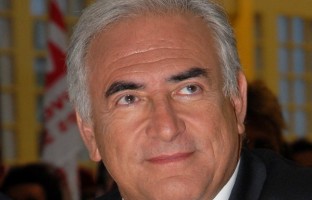The French code of silence

As Dominique Strauss-Kahn,
former managing director of the International Monetary Fund, tries to find a nicer place to stay than
Riker's Island, the French media are busy unraveling the shock bite that came
with an accusation of illegal imprisonment and attempted rape of a hotel maid.
It is the alleged violence of
the incident that has shaken the French. But it has also led some French
journalists to question what they admit was a protection of this government
leader's extramarital affairs. "We journalists haven't done our job properly," says Pierre Haski, a political commentator and
co-founder of Rue89. "We felt that we were
superior to the Americans and the British by upholding the principle of
protecting private life . . . we need to define our role in a more aggressive
way--and say that not everything private is private."
In the U.S., the media is
hardly shy about sharing the adventures and misadventures of its governmental
leaders. While the sexual habits of John F. Kennedy were covered up for him by
his retinue of loyal staffers and adoring reporters, it seems that every leader
and potential leader since then is scrutinized for any misstep, especially a
sexual one.



